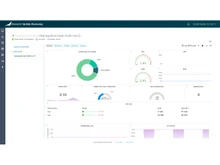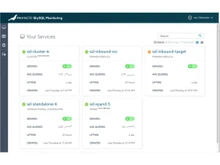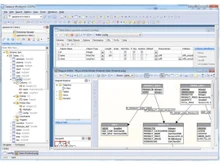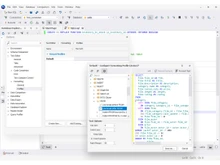When it comes to relational database management systems (DBMS), MariaDB and PostgreSQL stand out as two leading open-source options. While both platforms offer robust data management solutions, they differ in various aspects, including performance, features, and ease of use. In this comprehensive comparison, we'll compare MariaDB and PostgreSQL across various aspects to help you make an informed decision.
MariaDB vs. PostgreSQL: Overview
MariaDB and PostgreSQL are both powerful RDBMS systems known for their reliability, scalability, and extensibility.
MariaDB is an upgraded and modified version of MySQL which was developed by the original creators of MySQL. It aims to be a drop-in replacement for MySQL, offering enhanced performance, scalability, and new features while maintaining compatibility with MySQL.
PostgreSQL, often referred to as Postgres, is an object relational database system. It is renowned for its advanced features, extensibility, and strict adherence to SQL standards. It has a strong reputation for data integrity, ACID compliance, and support for complex data queries.
MariaDB vs. PostgreSQL: Pros and Cons
- As PostgreSQL is an object-relational database management system, it generally offers more features than MariaDB.
- When it comes to read/write operations, MariaDB outshines PostgreSQL in read-heavy workloads due to its optimized engines like Aria and XtraDB.
- MariaDB supports a variety of storage engines which are optimized for different workloads, whereas PostgreSQL’s default engine is InnoDB and it offers limited additional engines.
- MariaDB has a dedicated ColumnStore for workloads that require querying specific columns frequently. Whereas PostgreSQL itself doesn't have a dedicated columnar engine.
MariaDB vs. PostgreSQL: In Terms of Features
- Data types: MariaDB offers multiple data types such as dates, floats and strings. Moreover, it also supports SET, spatial data, ENUM and LONGTEXT columns to store unstructured data. On the other hand, PostgreSQL offers an extensive selection of data types compared to MariaDB as it supports strings, floating-point numbers, arrays, dates, Booleans and integers. Furthermore, PostgreSQL supports UUIDs (Universally Unique Identifiers), JSNOB, and JSON for unstructured data.
- Indexes: MariaDB and PostgreSQL offer different indexing options for efficient data retrieval. MariaDB relies on columnar storage and concurrent processing to handle large datasets. However, it does support B-tree indexing by default. Moreover, MariaDB offers four types of Indexes including unique indexes, primary keys, full-text indexes and plain indexes. On the other hand, PostgreSQL provides a wider range of indexing options including B-tree, GIST, Sp-GiST, BRIN, GIN, and hash indexes. It also supports partial indexes and allows for simultaneous use of multiple indexes. Overall, PostgreSQL offers more diverse and advanced indexing capabilities compared to MariaDB.
- Syntax and language: MariaDB and PostgreSQL both use SQL (Structured Query Language) for interacting with data. However, PostgreSQL has some additional features or functions that require slightly different syntax compared to MariaDB. For example, PostgreSQL offers materialized views, which require specific commands for creation and use.
- Replication: Both MariaDB and PostgreSQL support various replication methods for achieving high availability and fault tolerance. MariaDB's Galera Cluster provides synchronous replication with automatic failover, while PostgreSQL offers built-in streaming replication and third-party solutions like Patroni for automated failover.
- Data Typing: MariaDB and some other MariaDB alternatives provide better flexibility when it comes to data typing. It can automatically adjust data types that are fit for your project. Users can establish rules such as instant acceptance or triggering alerts regarding data acceptance. This flexibility is advantageous for handling a diverse range of data inputs. In contrast, PostgreSQL maintains strict data integrity checks and it doesn’t allow users to insert data that doesn't match the destination type.
MariaDB vs PostgreSQL: Performance
When it comes to performance, MariaDB is more suitable for smaller databases and can store data in memory, unlike PostgreSQL. However, PostgreSQL surpasses MariaDB as it uses both internal and server page cache to retrieve frequently accessed data. This enhances query speeds. Moreover, PostgreSQL offers advanced features like partial indexes and materialized views that are absent in MariaDB.
MariaDB vs PostgreSQL: Scalability
In terms of scalability, MariaDB focuses on vertical scalability, allowing you to boost infrastructure capacity as workload grows. It uses pluggable storage engines like InnoDB and ColumnStore to leverage hardware enhancements for better performance. On the other hand, PostgreSQL and a few PostgreSQL alternatives emphasize horizontal scalability, spreading data across multiple nodes for enhanced performance. It offers diverse replication methods and supports logical sharding through table partitioning.
MariaDB vs PostgreSQL: Ease of Use
MariaDB is generally considered easier to learn and use, especially for those familiar with MySQL. It offers good compatibility with existing MySQL applications. PostgreSQL on the other hand, can have a steeper learning curve due to its wider range of features and stricter data typing. It may require more configuration for specific use cases.
MariaDB vs PostgreSQL: Pricing
MariaDB offers both free and paid plans. The free plan comes with limited features such as Modern Relational Database, OLTP + OLAP and compatibility features. The paid plans are available on request. On the other hand, PostgreSQL is a free and open-source software. However, if you need frequent support, you can check out EnterpriseDB; PostgreSQL’s commercial version.
MariaDB vs PostgreSQL: Community and Support
PostgreSQL offers a strong community, documentation, mailing lists and IRC for better customer support. Overall, MariaDB has an upper hand over PostgreSQL as it has a large and active community due to its association with MySQL. Furthermore, it also offers mail, chat and call support for any assistance.
Which is Better, MariaDB or PostgreSQL?
Both MariaDB and PostgreSQL offer robust solutions for data storage and management, catering to a wide range of use cases and preferences. Your choice between the two will ultimately depend on factors such as performance requirements, feature priorities, ease of administration, and community support.
By carefully evaluating these aspects in alignment with your specific needs, you can determine which database system best aligns with your objectives and preferences.


 3 Ratings & 0 Reviews
3 Ratings & 0 Reviews






















